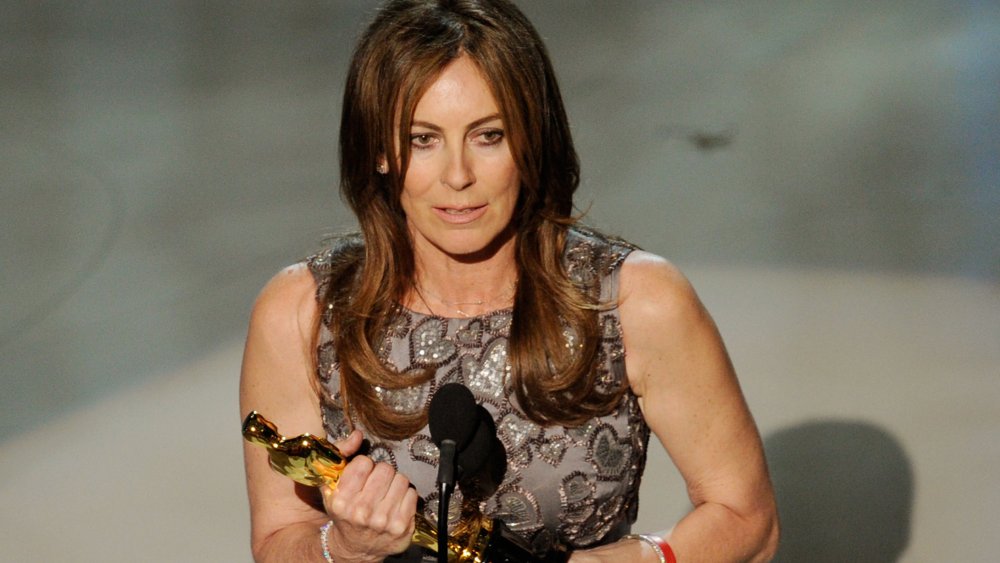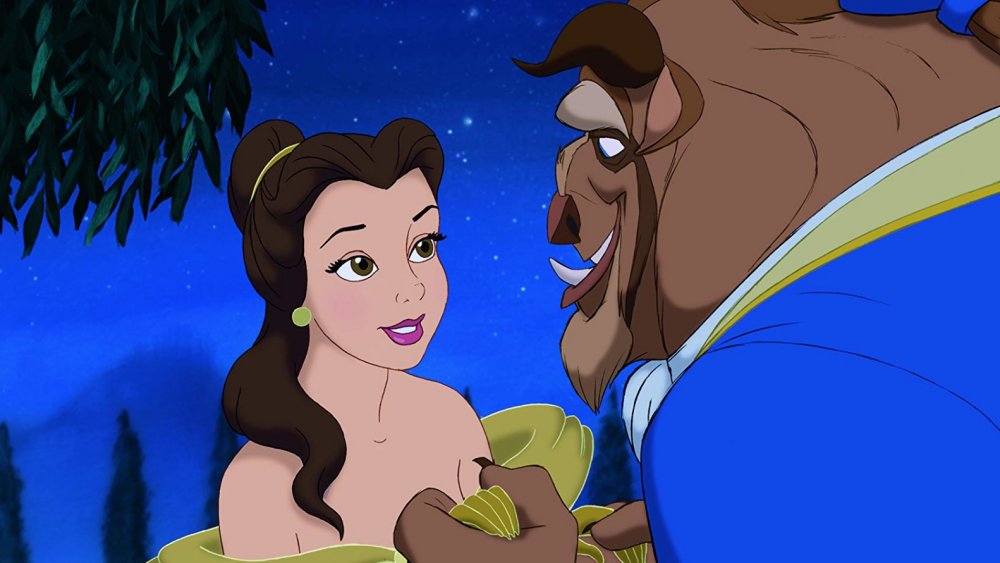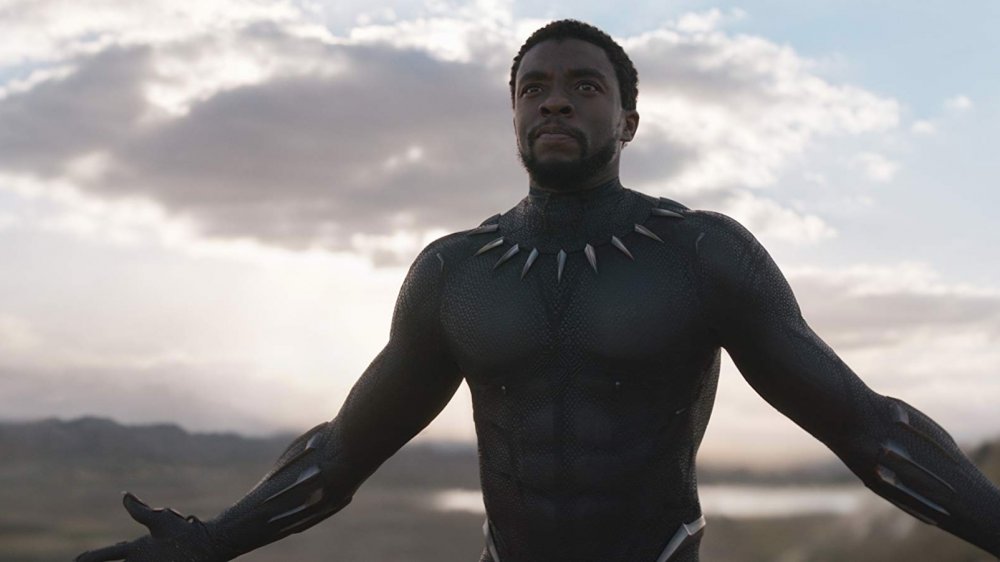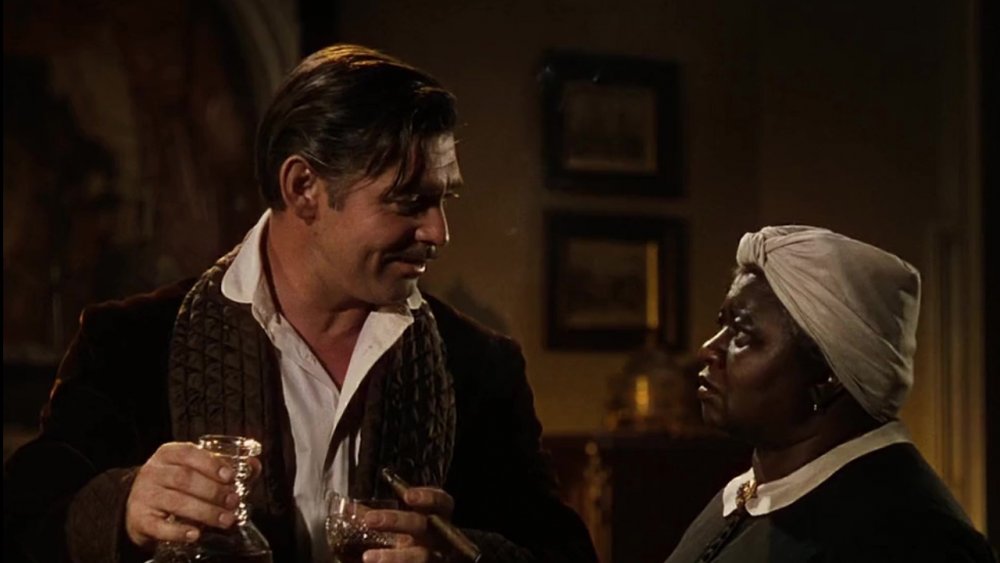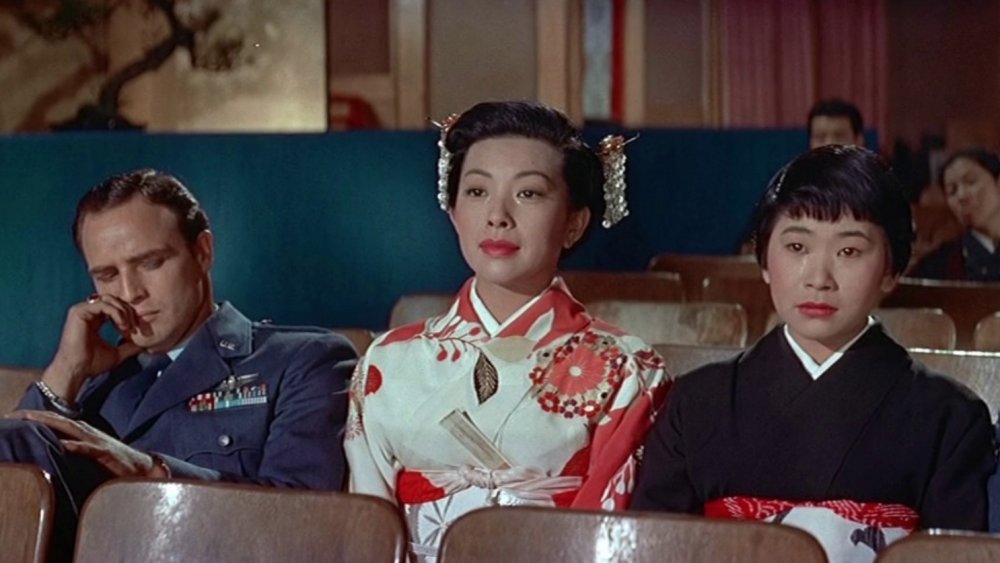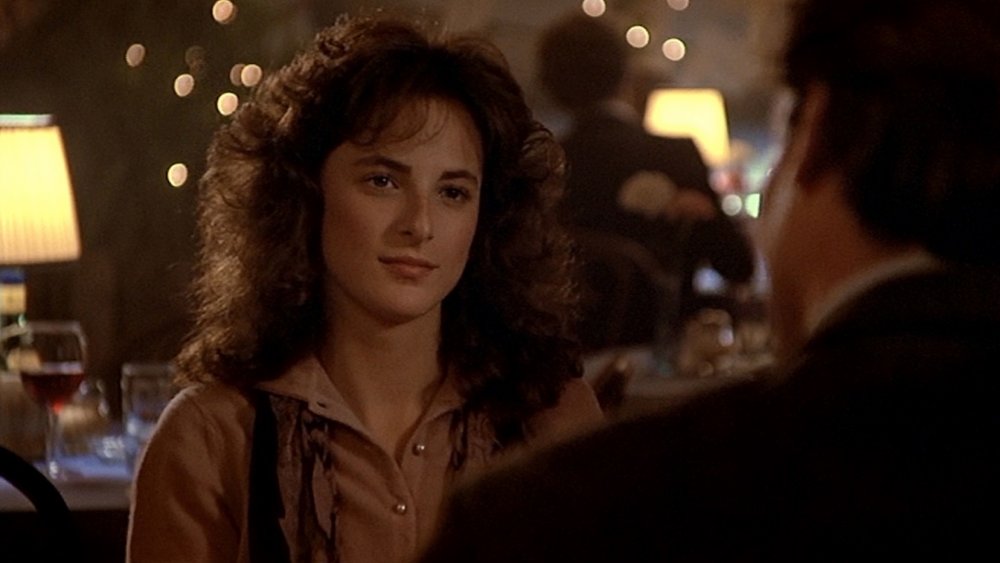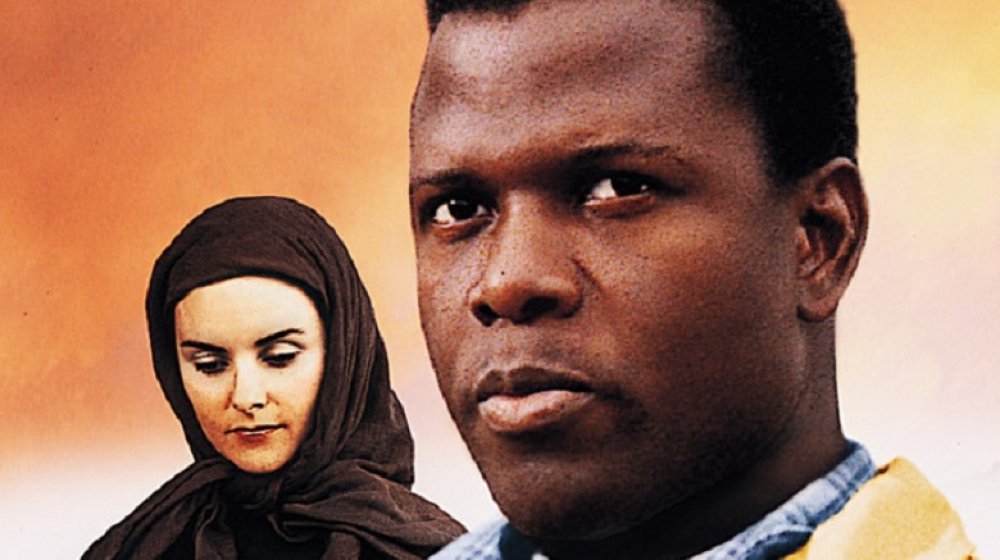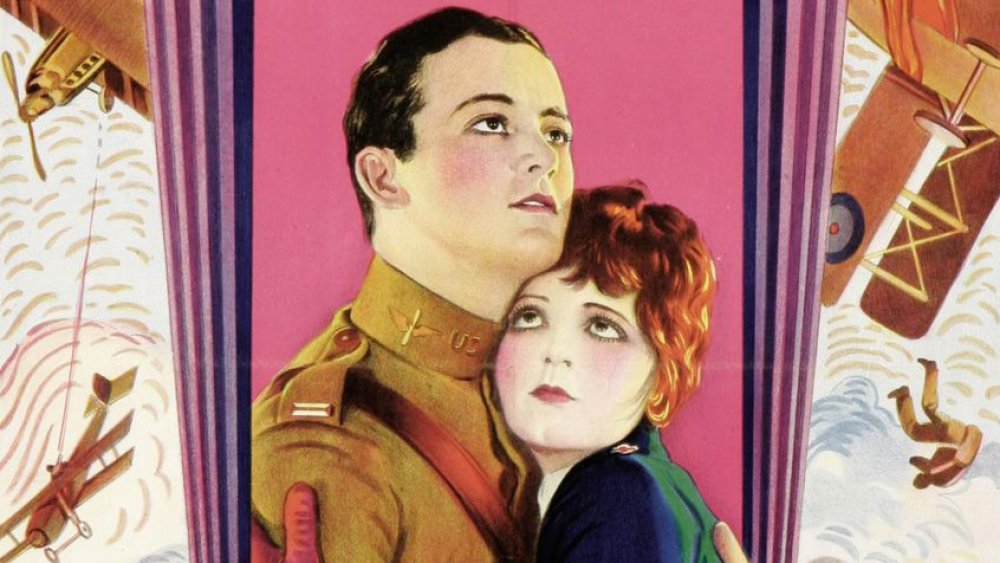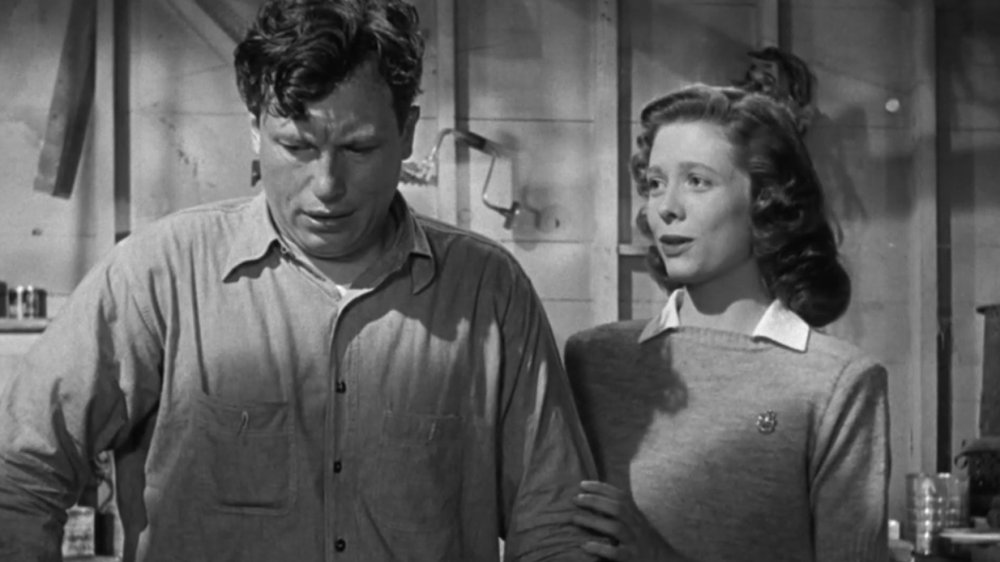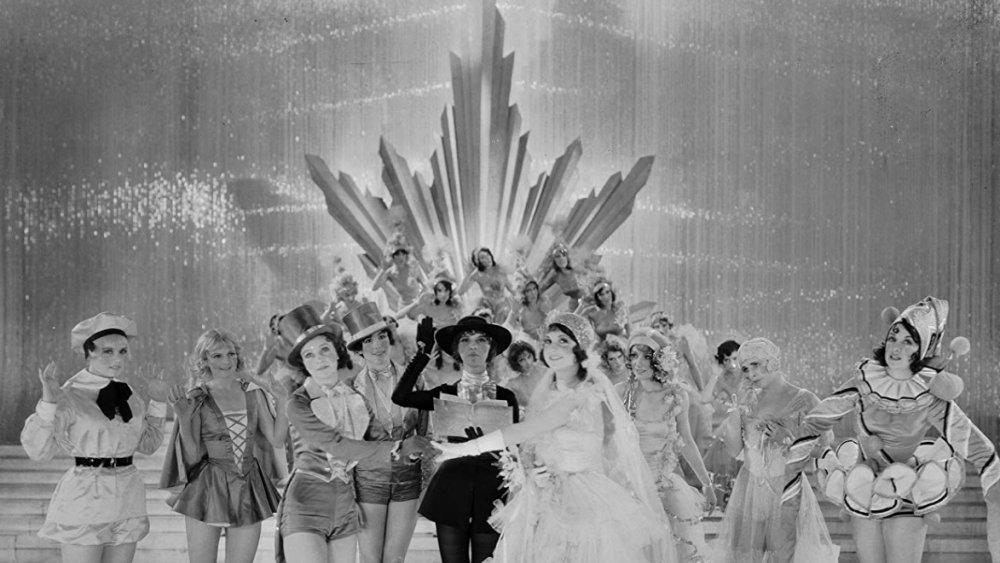Best Picture Nominees That Made Oscar History
It's one thing to make a good movie — it's another to make history. While there have literally been hundreds of Academy Award nominees for Best Picture, with over 90 of them taking home the prized Oscar gold, very few have earned the far more notable and lasting honor of being historic. And by making history, the films on this list achieved what no other Best Picture nominee had ever done before.
Some broke through glass ceilings, while others broke down genre barriers. Some were technical achievements, while others were cultural milestones. Some honored individuals from historically underrepresented groups, while others provided a major moment for an entire country. Each film on this list is unique in its own way, but they all changed the landscape at the Academy Awards forever and laid the groundwork for similar films to follow. What are these films, and what makes them historic? Well, here are the Best Picture nominees — and the artists involved — that made Oscar history.
Parasite makes Best Picture history for South Korea
Released in 2019, Parasite tells the story of the unemployed Kim family and how they con their way into the lives of the wealthy Park family and, as a result, get entangled in a rather unexpected incident. It's a densely layered, thoughtful look at social class and family dynamics that's at times both laugh-out-loud hilarious and deeply troubling.
And this black comedy and drama from writer/director Bong Joon-ho (The Host, Snowpiercer, Okja) has gone where no other South Korean film has gone before. It's made more than $30 million domestically and $160 million worldwide, and it earned an incredible 99 percent Tomatometer score from critics and 93 percent from audiences. So basically, everybody who's seen Parasite really loves it. Parasite has also cleaned up on the awards circuit, becoming the first foreign-language film to win Best Ensemble at the Screen Actors Guild awards, a common predictor for Best Picture winner. In addition to making bank, Parasite has also made history as the first South Korean film to be nominated for Best Picture at the Academy Awards. That's right — the first one ever. This is a country that's made modern-day classics like Oldboy, The Man from Nowhere, and The Handmaiden, so that should tell you Parasite is something special.
The Hurt Locker goes down in her-story
In 2009, there had been more than 81 nominees for Best Director, and only three had been women: Lina Wertmüller for Seven Beauties (1977), Jane Campion for The Piano (1993), and Sofia Coppola for Lost in Translation (2004). Kathryn Bigelow joined this illustrious list in 2010 with her film The Hurt Locker, which unlike those other films was a clear front-runner for Best Picture and Director. This would be a compelling story on its own, but the film press couldn't resist adding a little bit of personal drama to the narrative. This is Hollywood, after all.
As it turns out, one of Bigelow's fellow nominees was also her ex-husband, three-time Oscar-winner James Cameron, who directed the $2.7 billion earning Avatar, the then-highest-grossing film of all time. History would not be denied as not even the Na'vi could stop The Hurt Locker, one of the greatest war films ever. At the 82nd annual Academy Awards, Kathryn Bigelow became the first female to win Best Director, as well as the first female to direct a Best Picture winner (for which she also won an Oscar). Of her historic achievement, Bigelow said, "I hope I'm the first of many [women], and of course, I'd love to just think of myself as a filmmaker. And I long for the day when that modifier can be a moot point."
The Academy finally tells animated films to 'be our guest'
Snow White and the Seven Dwarfs was released in 1937 as the first feature-length animated movie, and it won Walt Disney an honorary Oscar. In fact, Walt Disney personally won a record 32 Academy Awards, while the film company he founded has earned more than 120 Oscars and counting. Despite this, the Mouse House has never won Best Picture.
However, in 1992, nearly 30 years after their founder's death in 1966, the folks at Walt Disney Studios had a shot at taking home the coveted Best Picture Oscar with their landmark feature film Beauty and the Beast. This was the first time a full-length animated feature had been nominated for Best Picture, and it couldn't have gone to a more worthy contender. Disney's Beauty and the Beast earned major praise from critics for its songs and gorgeous animation, and it enchanted moviegoers to the tune of $425 million worldwide. Sadly, Beauty and the Beast didn't win the night's top prize. Instead, that went to a very different beauty and the beast-style story, The Silence of the Lambs. Nevertheless, it was a major moment in the history of both the Oscars and animated movies.
Horror films were no longer silenced thanks to this Best Picture winner
Horror may be the most disrespected genre. In many ways it's not hard to see why, as it's long been the domain of low-budget, low-brow exploitation pics that your parents wouldn't let your rent from your local Blockbuster as a kid. Basically, it's a guilt-by-association situation, as even the masterpieces of the genre, like Bride of Frankenstein, The Shining, Rosemary's Baby, and Alien, weren't nominated for a Best Picture Oscar.
While plenty of thrillers have been nominated, the first straight-up horror picture to receive a Best Picture nomination was The Exorcist in 1974, followed by Jaws in 1976. But the first horror film to not only score a Best Picture nomination but to also win the coveted prize was The Silence of the Lambs in 1992. Based on Thomas Harris' best-selling book, The Silence of the Lambs tells the story of FBI agent Clarice Starling who seeks the aid of a brilliant cannibal psychiatrist to help her track down a serial killer who's murdering young women. The Silence of the Lambs currently boasts a 96 percent Tomatometer score, and it earned $130 million domestically and $272 million worldwide on a $19 million budget, so it was a successful movie by any measure. But the film also cleaned house at the Academy Awards, winning Oscars for Best Picture, Director, Actress, Actor, and Screenplay.
Black Panther gets superheroes their first Best Picture nomination
The Dark Knight amazed film critics and filmgoers alike in 2008, earning praise as one of the best superhero films ever made. Plus, the movie raked in over $530 million at the box office, making it the then-second highest-grossing film behind Titanic, domestically. However, The Dark Knight's most lasting contribution is what it didn't do — score a Best Picture Oscar nom. The Dark Knight's failure to become one of the five Best Picture nominees in 2009 was a historic snubbing that forced the Academy to expand the list of nominees to make room for more mainstream films. Even so, it would be 11 years before a superhero film would be nominated for Best Picture.
Interestingly, in 2008, another superhero movie was released: Iron Man. While it wasn't nominated for an Oscar either, it launched the Marvel Cinematic Universe, which would indeed feature the first superhero movie to earn a Best Picture nomination. Yeah, that's right. We're talking about Black Panther. Directed by Ryan Coogler, Black Panther's critical and commercial success topped even The Dark Knight, earning a 97 percent Tomatometer rating and a mind-boggling $700 million domestically and $1.3 billion worldwide. But lots of superhero movies have made money, so fans still wondered — could Black Panther have a shot at gold?
Well, one key supporter was Christopher Nolan, the director of The Dark Knight, who predicted the film would be nominated. Nolan's prediction came true when Black Panther became the first superhero movie nominated for Best Picture. While Green Book took top honors that night, Black Panther won three Oscars — for Best Score, Best Costume Design, and Best Production Design.
Hattie McDaniel was the first African-American to win in Oscar history
Gone with the Wind is the highest-grossing film of all time adjusted for inflation, with a $200 million lifetime gross that's worth $1.8 billion in today's dollars. It ranks #6 on the American Film Institute's greatest movies list, and it was also the first color film to win an Academy Award for Best Picture, one of eight Oscars it snagged that night.
Among these many accolades, Gone with the Wind's most meaningful achievement was the Best Supporting Actress award won by Hattie McDaniel. McDaniel was the only black woman in the room at the 12th annual Academy Awards, and the film's producer David O. Selznick even had to petition to allow her in to the segregated Ambassador Hotel. For her role as Mammy in Gone with the Wind, McDaniel became the first African-American ever nominated for an Oscar, and that night, she made history again when she accepted the trophy for Best Supporting Actress, becoming the first African-American to win an Academy Award.
Interestingly, she eschewed the speech written for her by Selznick, and instead read a speech written with her friend, black author Ruby Berkley Goodwin, saying, "It has made me feel very, very humble, and I shall always hold it as a beacon for anything I may be able to do in the future. I sincerely hope I shall always be a credit to my race and to the motion picture industry."
Miyoshi Umeki says Sayonara to the glass ceiling
Despite being an Academy Award nominee for Best Picture, Sayonara hasn't remained front and center in the public consciousness. That said, Sayonara is historically significant as its star, Miyoshi Umeki, became the first and thus far only Asian to win an Academy Award for acting.
Released in 1957, Sayonara stars Marlon Brando as a US Air Force major stationed in Kobe, Japan, who must confront his own prejudices about interracial marriage between American servicemen and Japanese women when he falls in love with a beautiful performer. Umeki plays the fiancee and eventual bride of Brando's buddy, a fellow pilot played by Red Buttons. Raised in the northern Japanese island of Hokkaido, Umeki dreamed of one day becoming an American pop singer. She moved to New York City in 1955, and just two years later, she was starring opposite of Brando.
After being announced as the winner for Best Supporting Actress, Umeki accepted her award in a kimono, but she seemed to struggle with the language barrier onstage, saying, "I wish somebody would help me right now," and thanking "all American people" before bowing to the audience. Umeki's career never reached the same heights, though she was nominated for a Tony award for her role in the Broadway musical Flower Drum Song.
Children of a Lesser God features a landmark performance
Children of a Lesser God was released in 1986, and yeah, it seems as if time has forgotten this little film. As for the plot, the movie tells the story of an instructor at a New England school for the deaf, played by William Hurt, who falls in love with a deaf and mute member of the custodial staff, played by Marlee Matlin. The film received positive reviews, but it wasn't exactly hailed as the next Citizen Kane.
Still, the movie transcended its "Oscar bait" scenario thanks to the performances from its two leads, especially Matlin. The actress brought an added authenticity and honesty to her role because she was, in fact, deaf. The film was nominated for five Oscars, including Best Picture, Screenplay, Actor for Hurt, Actress for Matlin, and Supporting Actress for Piper Laurie, but it only took home one for Matlin. But her victory wasn't just a big win for the film, it was a major milestone as well, as she became the first deaf person to be nominated for and win an acting Oscar. If that wasn't impressive enough, she was only 21 years old when she won her Oscar, and Children of a Lesser God was her first movie role.
Sidney Poitier beats out the Field to win an Oscar
Back in 1940, Hattie McDaniel was the first African-American to ever be nominated and win an Oscar, accomplishing both feats with her role as Mammy in Gone with the Wind. However, it would be nearly another quarter of a century before another African-American actor achieved a similar feat.
Sidney Poitier had taken the New York stage by storm and was doing the same in Hollywood, becoming a movie star with The Blackboard Jungle in 1955 and scoring an Oscar nomination for his role in 1957's The Defiant Ones. His career, and the motion picture industry, took a major leap forward in 1963 with Lilies of the Field. In the film, Poitier plays Homer Smith, a traveling laborer who serves five nuns in the Arizona desert. For his role, Poitier beat out Paul Newman, Rex Harrison, Albert Finney and Richard Harris to win the Oscar and, in so doing, he became the first African-American to win the Academy Award for Best Actor. For his historic accomplishments and incredible contributions to the film industry, Sidney Poitier also received an Honorary Academy Award in 2002.
Wings is the Oscars' first big winner
The first-ever Academy Awards ceremony was much different from the awards show we now know and love (or hate). For one, there were two separate categories for Best Director — for a comedic picture and dramatic picture. There were also two "special award" winners, The Jazz Singer and The Circus. Believe it or not, there was also no "Best Picture," per se. Instead, there was an award for "Outstanding Picture." And frankly, "Outstanding Picture" sounds way more impressive.
Each of the three nominees for "Outstanding Picture" — 7th Heaven, The Racket, and Wings — were thus making history. Only one could win the award, though, and that was Wings. And no, we're not talking about the horribly dated '90s sitcom about private commuter pilots. Wings tells the story of two young men, one rich and one middle-class, who fall in love with the same woman while also serving as fighter pilots in World War I. So basically, it's Pearl Harbor but without sound, set during a different war, and about an hour shorter. Several Best Picture winners have come and gone, and in hindsight, many didn't deserve the honor (*cough* Crash *cough*). Wings is not one of them, however, and with a current 93 percent Tomatometer ranking, it was the perfect takeoff to the inaugural spectacular.
A disabled war hero makes Academy Award history
The Best Years of Our Lives, winner of the Academy Award for Best Picture in 1947, is an unquestioned masterpiece. While we can argue in hindsight if the award should've instead gone to its fellow nominee, It's A Wonderful Life, no serious film scholar would deny that The Best Years of Our Lives was a worthy winner, as William Wyler's story about World War II soldiers coming home still boasts a 96 percent Tomatometer ranking.
However, The Best Years of Our Lives made history not only because it won Oscars for Best Picture, Director, and Actor, among others, but because it's the first and only film to have an actor win two Oscars for the same performance. In the film, Harold Russell plays Homer Parrish, a young sailor who lost both hands in combat. There was no special effects trickery to realize this disability, as Russell truly was a war vet who had both of his hands amputated due to a wartime injury. Russell received two Oscars for his role, one for Best Supporting Actor and another honorary Oscar for "bringing aid and comfort to disabled veterans through the medium of motion pictures."
Sadly, Russell fell on tough times in 1992 when his wife's medical bills forced him to auction off his Best Supporting Actor award for $60,500 to an anonymous buyer, but Russell responded to the criticism by saying, "My wife's health is much more important than sentimental reasons."
The Broadway Melody was a milestone for sound films
The Jazz Singer was the first major Hollywood production to feature spoken dialogue and sound in 1927, effectively changing the motion picture business overnight. While it received an Honorary Oscar at the first Academy Awards ceremony, it wasn't nominated for Best Picture (which was originally called "Outstanding Picture"). The first sound film to be nominated for Outstanding Picture (and win) was honored the next year at the second annual Academy Awards ceremony, and the winner was titled The Broadway Melody.
The Broadway Melody follows the journey of two sisters who are performers on vaudeville who dream of making it big on Broadway, that is until matters of the heart complicate their adventure. If this story sounds pretty basic and bland, you're not the only one to think so. It was pretty trite even 90-something years ago. History has not been kind to The Broadway Melody, as it currently has a dreadful 35 percent score on Rotten Tomatoes. While we can argue the merits of The Broadway Melody being the most Outstanding Picture of 1929, it still made history as the first sound film to take home the top prize. Moviegoers and Oscar voters were so keen on sound, another silent film wouldn't win the Academy Award for Best Picture until The Artist in 2012.


